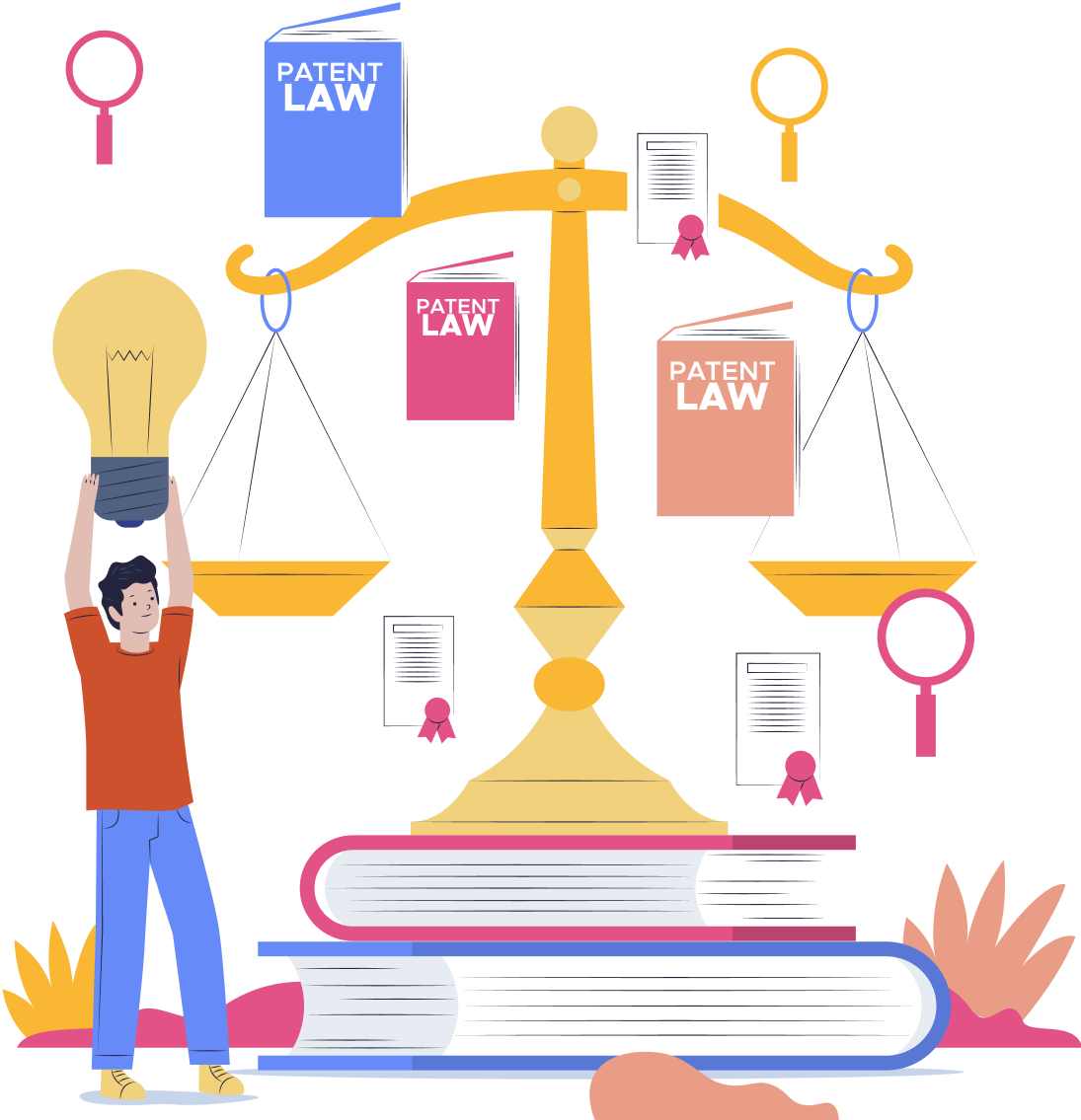Parliament And The Making Of Laws – Complete Guide For Class 8 Civics Chapter 3
Our learning resources for the chapter, “Parliament and the making of laws” in Civics for Class 8th are designed to ensure that you grasp this concept with clarity and perfection. Whether you’re studying for an upcoming exam or strengthening your concepts, our engaging animated videos, practice questions and notes offer you the best of integrated learning with interesting explanations and examples.
The chapter ‘Parliament and the Making of Laws’ from the Class 8 Civics NCERT book is pivotal in understanding the legislative process in India. The chapter ‘Parliament and the Making of Laws’ provides an overview of how laws are formulated, highlighting the role of Parliament in this process. It outlines key points such as the structure of Parliament, the legislative process, and the importance of parliamentary procedures. Understanding the chapter ‘Parliament and the Making of Laws’ is essential for grasping how democratic governance operates and how laws impact society.
Objectives of the Chapter
Now that we understand the importance of studying this chapter, let’s explore the objectives behind ‘Parliament and the Making of Laws’.
- To understand the importance of public participation in the decision-making process and how people influence law-making.
- To learn about the structure and functions of Parliament and its role in the legislative process.
- To explore the process through which a bill is transformed into a law and the stages it undergoes.
- To examine how Parliament handles laws that are unpopular or controversial and the methods for addressing such issues.
Let’s now understand the various sections of the chapter in detail.
Firstly, to understand the importance of public involvement in law-making, let us delve into the section ‘Why Should People Decide?’ of the chapter ‘Parliament and the Making of Laws’.
Why Should People Decide?
- This section emphasizes the significance of involving citizens in the decision-making process.
- It explains that laws affect everyone, so public participation ensures that diverse perspectives are considered.
- This involvement can be through voting, public consultations, or feedback mechanisms, ensuring that laws reflect the needs and values of society.
The section ‘Why Should People Decide?‘ in the chapter ‘Parliament and the Making of Laws’ covers several key points. Let’s now understand about these.
- Democratic Participation:
Public involvement in decision-making is essential for a functioning democracy. It ensures that laws and policies reflect the will and needs of the people. By participating in the process, citizens help shape fair laws and representative of diverse viewpoints.
- Reflecting Diverse Needs:
Laws impact various segments of society differently. Allowing people to decide ensures that diverse perspectives and needs are considered. This inclusiveness helps create laws that address specific concerns and promote equity across different groups.
- Enhancing Accountability:
When people are involved in decision-making, it enhances the accountability of lawmakers. Elected representatives are more likely to be responsive to public opinion and act in the best interest of their constituents, knowing that their decisions are being scrutinized.
- Building Trust in Government:
Involving citizens in the decision-making process helps build trust in government institutions. It fosters a sense of ownership and engagement among the public, making them more likely to support and comply with laws that they helped shape.
Now, to understand the functions and significance of legislative institutions, let us delve into the section ‘The Role of the Parliament’ of the chapter ‘Parliament and the Making of Laws’.
The Role of the Parliament
- Here, the chapter outlines the structure and functions of Parliament, which consists of two houses: the Lok Sabha and the Rajya Sabha.
- The Lok Sabha represents the people directly, while the Rajya Sabha represents the states.
- The Parliament’s role includes debating, drafting, and passing laws, as well as overseeing the executive branch and ensuring that government actions align with public interest.
The section ‘The Role of the Parliament‘ in the chapter ‘Parliament and the Making of Laws’ covers several key points. Lets now understand about these.
- Law-Making:
The Parliament is responsible for creating and passing laws. Bills are introduced, debated, and refined in both houses—the Lok Sabha and the Rajya Sabha—before becoming law. This process ensures that legislation is thoroughly examined and reflects diverse viewpoints.
- Representation:
Parliament represents the people of India, with members elected to voice their constituents’ interests and concerns. The Lok Sabha represents the general population, while the Rajya Sabha represents states, ensuring that regional issues are addressed in national policy-making.
- Oversight of the Executive:
Parliament monitors and evaluates the actions of the executive branch. Through questioning, debates, and committees, it holds the government accountable, ensuring transparency and adherence to democratic principles.
- Debating Policies and Issues:
Parliament provides a platform for discussing and debating various national issues and policies. These debates allow members to express opinions, propose amendments, and negotiate compromises, ensuring that laws and policies are thoroughly vetted before implementation.
Now, in order to understand the process through which new legislation is created, let us delve into the section ‘How Do New Laws Come About?’ of the chapter ‘Parliament and the Making of Laws’.
How Do New Laws Come About?
- This section details the legislative process.
- A bill is introduced in either house of Parliament and goes through several stages: first reading, debate, committee review, second reading, further debate, and third reading.
- After approval by both houses, the bill is sent to the President for assent before becoming law.
- This process ensures thorough scrutiny and debate before a bill becomes law.
The section ‘How Do New Laws Come About?’ in the chapter ‘Parliament and the Making of Laws’ outlines several important points. Let’s explore these in detail.
- Introduction of a Bill:
The process begins with the introduction of a bill in either the Lok Sabha or the Rajya Sabha. The bill can be proposed by a minister or a member of Parliament. It sets the stage for detailed discussion and consideration of new legislation.

- Debates and Readings:
The bill undergoes several readings and debates in both houses. Each reading allows for discussion and examination of the bill’s provisions. Members propose amendments and make revisions based on feedback, ensuring the bill is thoroughly scrutinized.

- Committee Review:
After initial debates, the bill is referred to a parliamentary committee for detailed examination. The committee reviews the bill’s implications, gathers expert opinions, and suggests changes. This stage ensures comprehensive analysis and refinement of the proposed legislation.
- Approval by Both Houses:
Once the bill has been debated and reviewed, it is voted on by both the Lok Sabha and the Rajya Sabha. If approved by a majority in both houses, it moves to the President for final assent.

- Presidential Assent:
The bill is sent to the President for approval. The President can either sign the bill into law or return it with comments. Once the President assents, the bill becomes law and is implemented as part of the legal framework.
Now, in order to understand how Parliament handles laws that may be contentious or widely debated, let us delve into the section ‘Unpopular and Controversial Laws’ of the chapter ‘Parliament and the Making of Laws’.
Unpopular and Controversial Laws
- The chapter explains how Parliament addresses laws that may be unpopular or controversial.
- It discusses the mechanisms for debate and scrutiny, including parliamentary committees and public hearings.
- Controversial laws may face significant debate, amendments, or even rejection if they do not meet the needs and concerns of the populace.
- This section underscores the importance of robust discussion in ensuring that laws serve the public interest.
The section ‘Unpopular and Controversial Laws’ in the chapter ‘Parliament and the Making of Laws’ highlights several key aspects. Let’s examine these in detail.
- Debate and Scrutiny:
Unpopular or controversial laws often face extensive debates in Parliament. Members discuss the potential impacts and implications, allowing for diverse opinions and concerns to be addressed. This scrutiny helps ensure that the law is carefully considered before enactment.
- Public Feedback:
Parliament may seek public opinions on controversial laws through consultations and hearings. Engaging with citizens helps lawmakers understand the broader societal impact and gather feedback, which can influence amendments or reconsiderations of the proposed legislation.
- Amendments and Revisions:
During the legislative process, bills that face strong opposition might be revised or amended. Parliament may incorporate changes to address concerns and mitigate negative reactions, making the legislation more acceptable to a broader audience.
- Vote of Confidence:
In some cases, Parliament may hold a vote of confidence on controversial laws. This allows members to express their support or opposition formally. If a majority supports the law, it moves forward; if not, it may be revised or rejected.
- Reconsideration and Repeal:
If a law proves highly controversial and problematic after implementation, Parliament has the option to revisit and amend it. In extreme cases, the law may be repealed or replaced with a new law that better addresses the issues raised.
Now that we have discussed the whole chapter, let us know the overall learning value of the chapter ‘Parliament and the Making of Laws’.
Overall Learning Value of the Chapter
By studying the chapter ‘Parliament and the Making of Laws’ from the Class 8 Civics NCERT book, students gain valuable insights into the legislative process and the functioning of Parliament. This knowledge helps them understand the importance of democratic participation and the complexities involved in law-making, fostering a deeper appreciation for governance and public policy.
Practice questions on Chapter 3 - Parliament And The Making Of Laws
Get your free Chapter 3 - Parliament And The Making Of Laws practice quiz of 20+ questions & detailed solutions
Practice Now









Great notes, please gave option of pdf download as well